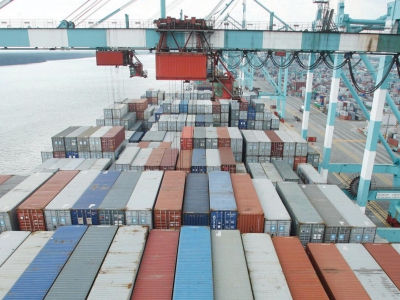The Blue Belt project
The European Commission has today set out plans to ease custom formalities for ships – reducing red tape, cutting delays in ports and making the sector more competitive.
Today, freight forwarders and exporters complain that if they chose to send goods across Europe by short sea shipping, the heavy administrative burden at ports causes additional costs and significant delays – ships can wait for hours and sometimes days in ports for customs clearance.
These make the maritime sector less attractive compared to other forms of transport, especially road, unnecessarily bringing more trucks on our already congested roads.
With today’s new Commission proposals, shipping transport will face less administrative hurdles and therefore be able to be used to its full potential in the EU internal market and beyond.
Vice-President Siim Kallas, responsible for Transport said: “Europe is faced with major challenges in terms of rising congestion and pollution. We need short sea shipping to fulfil its potential and provide a low cost, environmentally-friendly transport solution, taking more goods off lorries and off our congested roads. We are proposing innovative tools to cut red tape and help make the shipping sector a more attractive alternative for customers looking to move goods around the EU.” Read more about how shipping can provide eco-friendly solution taking goods off Europe’s congested roads
Commissioner Algirdas Semeta, responsible for taxation and customs union:”The Blue Belt will bring the single market to the seas. The proposed measures will greatly benefit shipping as they will reduce costs, simplify administration, facilitate trade and create a level playing field between all types of transport. At the same time this will simplify customs’ work so they can better target security risks and focus on protecting our citizens and businesses.“
|
New European Commission’s proposals on shipping 1. Easing customs formalities for intra-EU shippingShipping companies, using a regular route within the EU and transporting mainly EU goods, can already benefit from lighter customs procedures (under the Regular Shipping Services procedures). New proposals, submitted by the Commission in June 2013, will upgrade this Regular Shipping Services to make the procedures, shorter and more flexible. The consultation period for Member States will be shortened to 15, from 45 days. And companies will be able to apply in advance for an authorisation for Member States where they may want to do business- to save time if that business opportunity arises. 2. Easing customs formalities for ships that call in third country portsAlmost 90% of ships carry both EU and non EU goods and stop frequently at EU and non-EU ports for example in Norway, Northern Africa and Russia. For these ships, the Commission is proposing to significantly improve customs procedures by putting in place a system which can distinguish between the Union goods on board (which should be swiftly discharged) and the non-Union goods on board, which must go through the appropriate customs procedures. For this purpose, the Commission will bring forward before the end of the year a proposal to create a harmonised electronic cargo declaration. This new “eManifest” allows the shipping company to provide in all manifests (intra-EU and extra-EU) information on the status of goods to customs officials. It is expected that these two measures will make the Blue Belt a reality by 2015. |
For more information about figures in EU ports, read relevant article European ports: an engine for growth and view infographics databy EC Mobility and Transport
































































